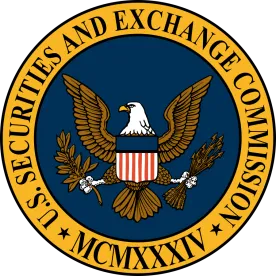Over the last year, the SEC has continued to intensify its focus on disclosures from investment advisers on Forms ADV regarding several issues, including—but not limited to—revenue sharing arrangements. Last week, the D.C. Court of Appeals handed down a decision that will likely have significant ramifications for investment advisers and the SEC’s Division of Enforcement (“Enforcement”). In Robare Group, Ltd., v. SEC, the D.C. Circuit upheld the SEC Commission’s decision that the use of the word “may” in a disclosure regarding an investment adviser’s conflicts of interest pertaining to revenue sharing violated the negligence-based fraud provision of Section 206(2) of the Investment Advisers Act of 1940 (“Advisers Act”).
On appeal, The Robare Group, Ltd., a Texas-based investment adviser, argued that the evidence presented by Enforcement in an administrative proceeding did not support the Commission’s ruling, upon review, that their disclosures regarding conflicts of interest relating to a revenue sharing agreement were inadequate. Sections 206(2) and 207 of the Advisers Act were at issue on appeal.
Robare used Fidelity Investments for execution, custody, and clearing services for its advisory clients. Robare entered into a revenue sharing arrangement with Fidelity Investments in 2004. Through that arrangement, Fidelity paid Robare when its clients invested in certain mutual funds offered on Fidelity’s platform. Robare received nearly $400,000 from Fidelity from 2005 to 2013 as a result of the arrangement.
Robare had modified its Form ADV disclosures in December 2011, after Fidelity advised Robare that it would cease making payments if the arrangements were not disclosed. Robare’s disclosures then stated that certain investment advisers “may receive selling compensation” due to “the facilitation of certain securities transactions on Client’s behalf” through certain broker-dealers, or “may also receive compensation resulting from the sale of insurance products to clients.” Robare further revised its disclosures to state, “Additionally, we may receive additional compensation in the form of custodial support services from Fidelity based on revenue from the sale of funds through Fidelity. Fidelity has agreed to pay us a fee on specified assets, namely no transaction fee mutual fund assets in custody with Fidelity. This additional compensation does not represent additional fees from your accounts to us.”
In 2014, Enforcement filed charges against Robare and its principals alleging that Robare had failed for years to disclose to clients and the SEC that it received shared revenue from Fidelity and the conflicts of interest that consequently arise therefrom. Enforcement alleged that Robare’s conduct violated Sections 206(2) and 207 of the Advisers Act. In 2015, an administrative law judge dismissed the charges. Enforcement appealed, and the Commission saw the situation differently. In the Commission’s opinion, it found that Robare negligently failed to adequately disclose said conflicts and willfully failed to provide enough information in its Form ADV filings.
In last week’s ruling, the D.C. Circuit agreed with the Commission and Enforcement that Robare’s disclosures “did not disclose that [Robare] had entered into an arrangement under which it received payments from Fidelity for maintaining client investments in certain funds Fidelity offered.” It further found that the Form ADV “in no way alerted its clients to the potential conflicts of interest presented by the undisclosed arrangement.” The D.C. Circuit agreed with Enforcement that Robare and its principals should have known that their disclosures were inadequate and, therefore, acted negligently in violation of Section 206(2).
The Section 207 charge as alleged, however, requires willful conduct. The SEC has steadfastly maintained over the years that “willful” under the federal securities laws simply means “intentionally committing the act which constitutes the violation” and not that “the actor [must] also be aware he is violating one of the Rules or Acts.” See Wonsover v. SEC, 205 F.3d, 408, 414 (D.C. Cir. 2000). The DC Circuit rejected Enforcement’s arguments that the challenged Section 207 negligent conduct constituted “willful” conduct and explained that “[t]he statutory text signals that the Commission had to find, based on substantial evidence, that at least one of [Robare’s] principals subjectively intended to omit material information from [Robare’s] Form ADV” to prove a violation of Section 207. It was established that Robare’s conduct was negligent, not willful, and the two are mutually exclusive. As a result, Robare was not found to be in violation of Section 207.
To be sure, the Robare decision bolsters the SEC’s longstanding position that disclosures using “may” are not sufficient when the adviser “is” receiving fees or “is” engaging in other practices that create a conflict of interest.
On the other hand, the Robare opinion and ruling with respect to “willfulness” is likely to significantly impact the SEC’s charging decisions with respect to Section 207 and certain other provisions of the federal securities laws, and the SEC’s ability to obtain certain remedies for which willfulness is required.





 />i
/>i
